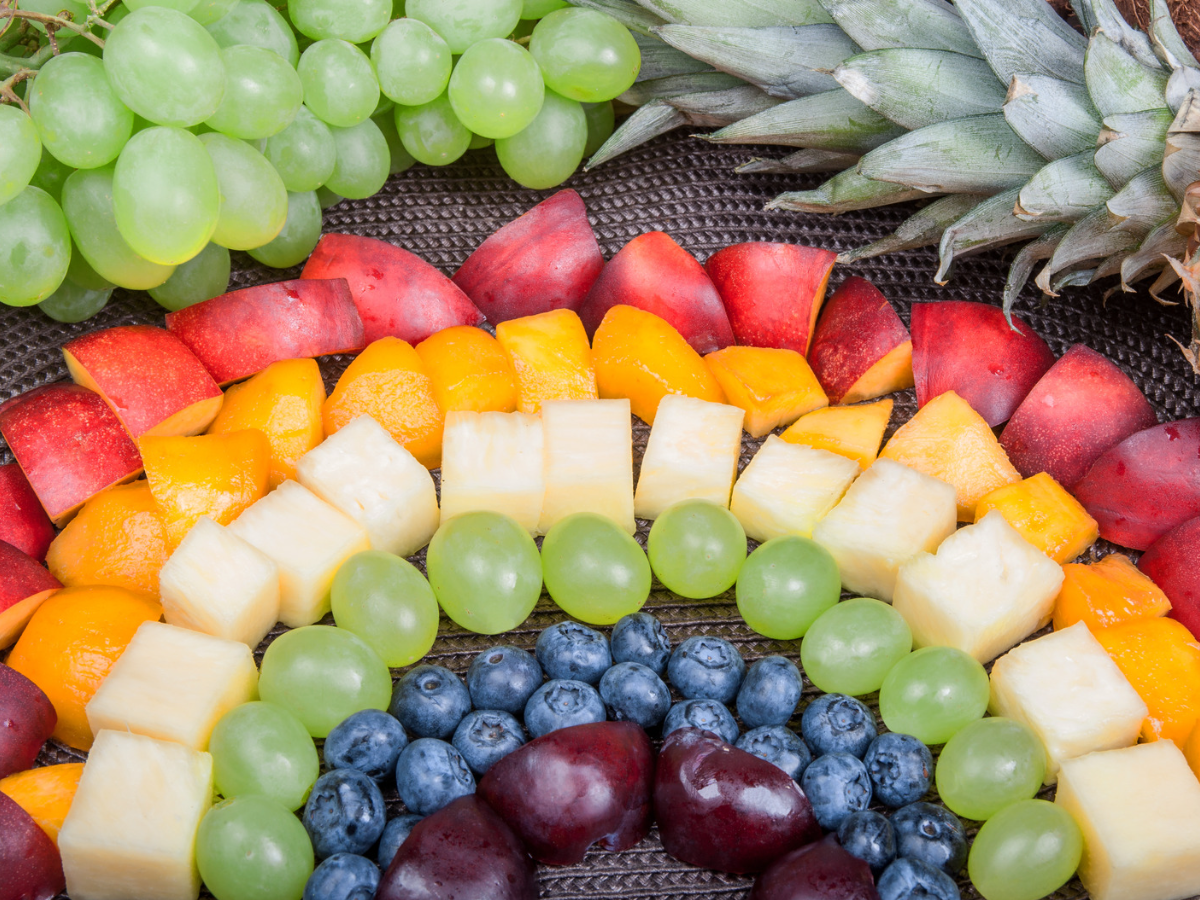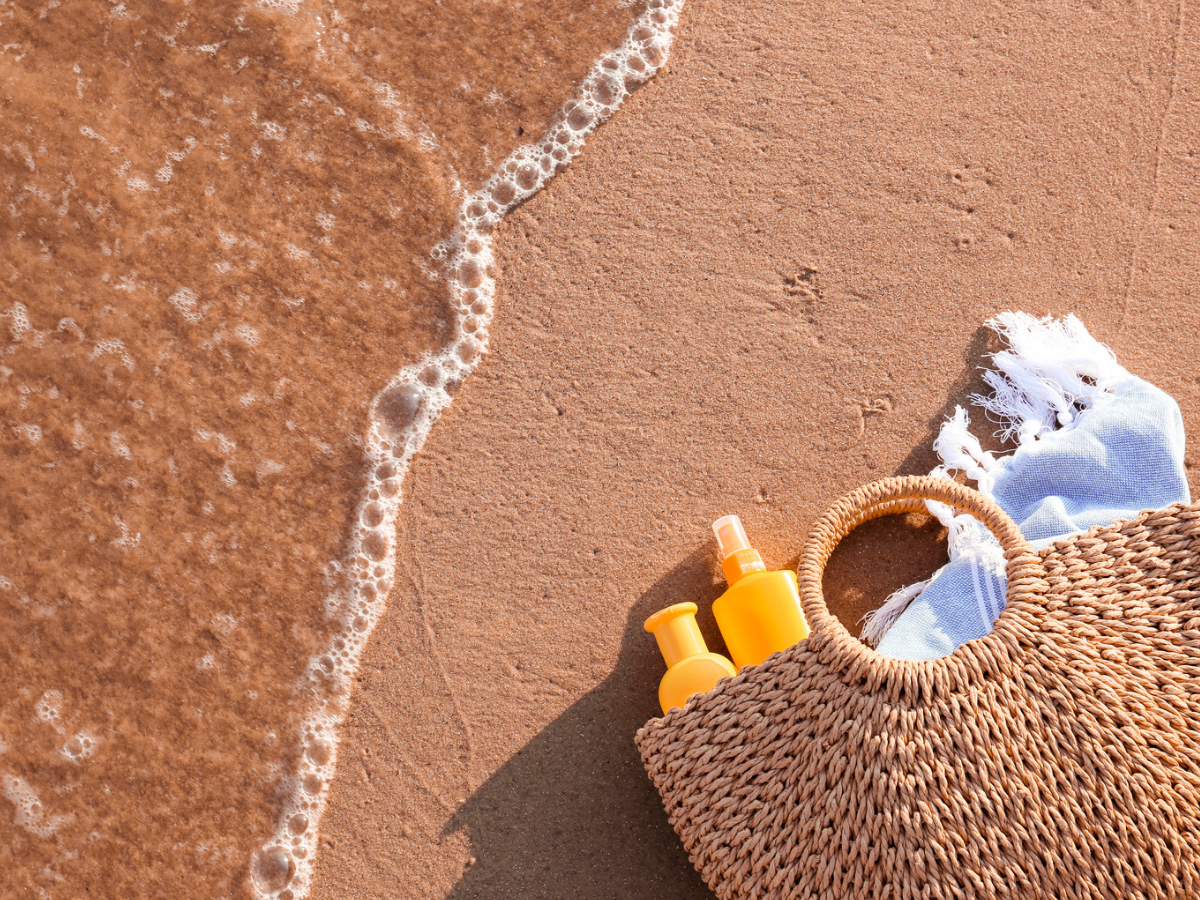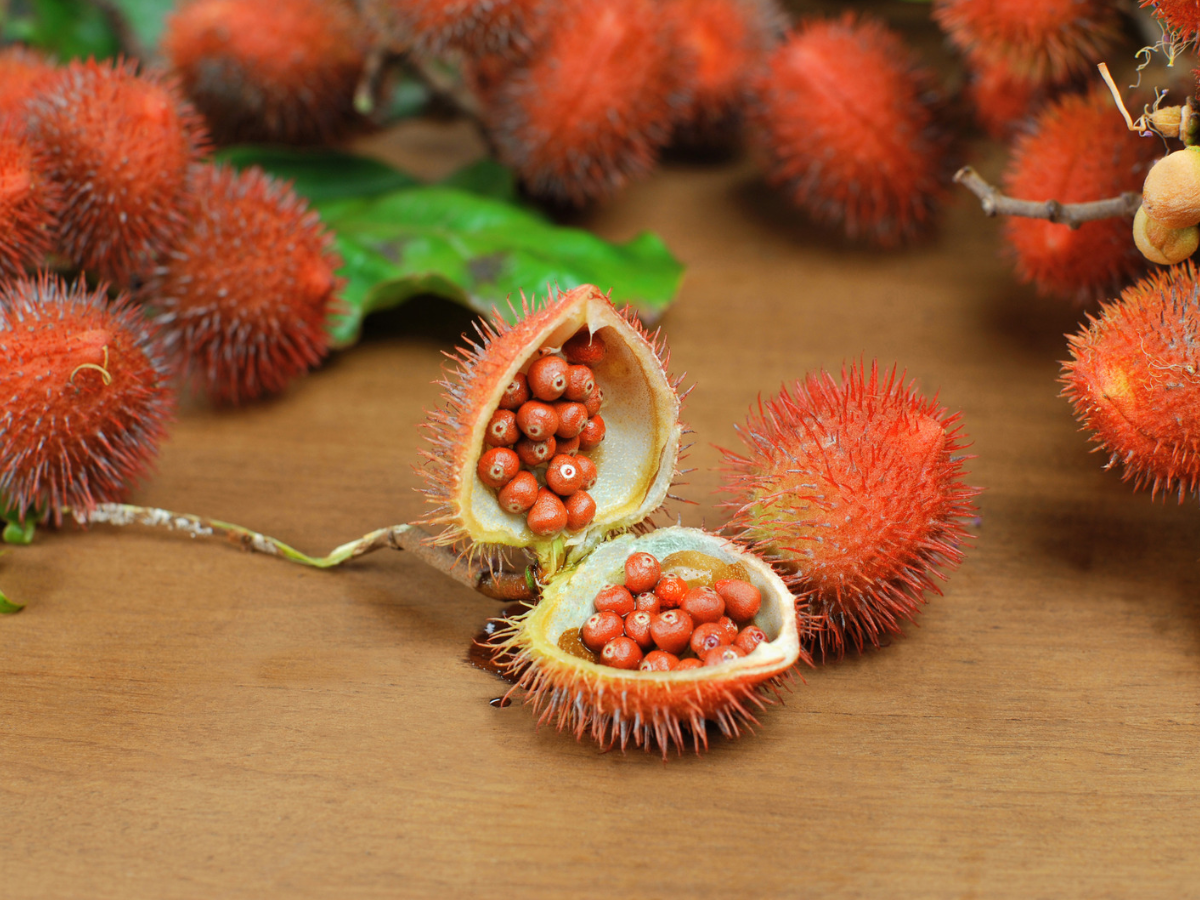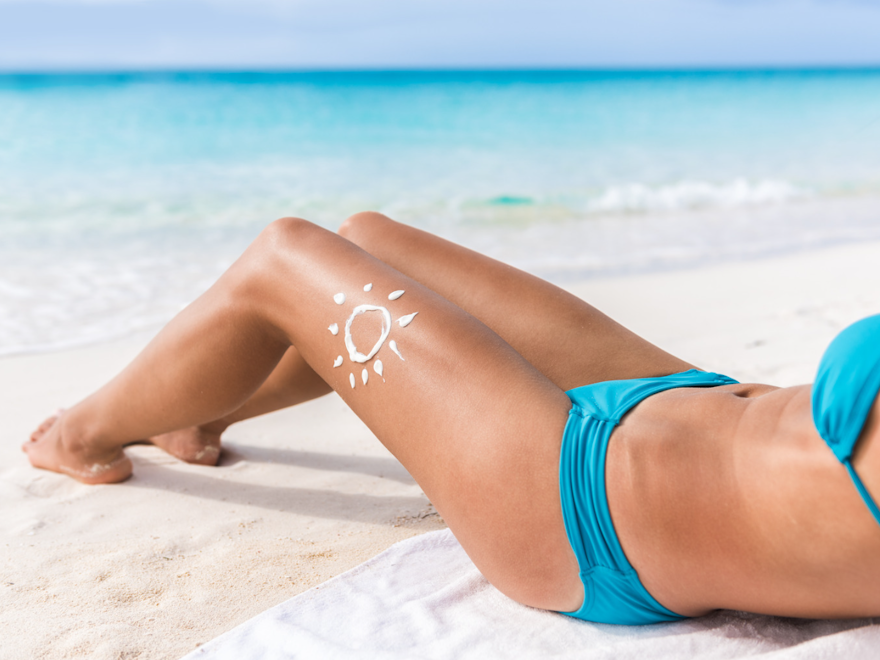Le soleil est là et avec lui la tentation grande de s’exposer pour obtenir un beau hâle doré et faire le plein de vitamine D essentielle pour l’organisme. Cependant, il est indispensable de prendre des mesures pour protéger la peau des rayons UV nocifs. Plutôt que de se fier uniquement aux crèmes solaires conventionnelles et chimiques, il existe d’autres moyens pour préparer sa peau au soleil et prendre soin d’elle naturellement. Découvrez les ci dessous.
Bien s’hydrater
Le geste ultime de santé pour la peau c’est évidemment de s'hydrater en buvant 1,5 à 2L d'eau de source ou filtrée par jour. Une peau bien hydratée est plus résistante et souple. Assurez-vous donc de boire suffisamment d'eau tout au long de la journée pour maintenir une hydratation optimale. Attention, thé, café, tisanes et autres boissons ne comptent pas dans ce volume !
Les fruits et légumes contribuent aussi à cette hydratation notamment avec les plus riches en eau, comme que le concombre, le melon et la pastèque.
Opter pour une alimentation riche en antioxydants et acides gras essentiels
Les antioxydants aident à protéger la peau des dommages causés par les radicaux libres générés par l'exposition au soleil et renforcent la résistance de la peau aux rayons UV.
Mangez “l'arc-en-ciel” en incorporant des fruits et de légumes de différentes couleurs dans votre régime alimentaire quotidien. Intégrez plus spécifiquement dans votre alimentation des aliments riches en caroténoïdes : carotte, tomate, abricots, baies et fruits rouges, poivrons, melon…
Consommez des aliments riches en vitamine E, antioxydante puissante présente dans les avocats, les noix, les graines et les huiles végétales ainsi que des acides gras essentiels que l’on trouve dans les oléagineux et graines (lin, chia, chanvre...), les poissons gras (sardines, maquereaux...) ou encore les végétales de lin, cameline, chanvre…

Exfolier sa peau en douceur
Un gommage léger de la peau stimule la circulation sanguine et permet à la peau de retrouver son éclat notamment en éliminant les cellules mortes et en favorisant le renouvellement cellulaire par une meilleure oxygénation. Cela permet d'obtenir une peau plus lisse, lumineuse et un teint plus uniforme. Une peau bien oxygénée est aussi plus réceptive aux bienfaits du soleil, favorisant ainsi un bronzage plus éclatant et une meilleure absorption des produits de protection solaire.
Appliquer un soin hydratant
Il est indispensable de veiller à l’intégrité du film hydrolipidique en lui apportant aussi un soin par l’extérieur. Pour cela, choisissez des cosmétiques naturels non toxiques ou irritants. Utilisez par exemple de l’huile de carotte, de framboise ou de jojoba, qui offrent en prime une légère protection solaire, ou des beurres végétaux comme le karité pour nourrir et apaiser la peau.
Privilégier les écrans solaires naturels
Si vous souhaitez utiliser un écran solaire, optez pour des produits naturels qui ne contiennent pas de substances chimiques nocives pour le corps et la planète. Recherchez des écrans solaires à filtres minéraux à base d'oxyde de zinc ou de dioxyde de titane et de préférence sans nanoparticules. Ces ingrédients forment une barrière physique sur la peau pour réfléchir les rayons UV sans être absorbés par la peau.
Et n’oubliez pas, les crèmes solaires n'empêchent pas de bronzer ! Le bon geste: toutes les 2 heures.

Éviter l'exposition excessive
Même avec une préparation adéquate, il est important de limiter votre exposition au soleil pendant les heures les plus chaudes de la journée, généralement entre 10h et 16h. Cherchez l'ombre lorsque vous le pouvez et utilisez des vêtements protecteurs tels que des chapeaux à larges bords, des lunettes de soleil et des vêtements anti-UV à manches longues.
Supplémentation et actifs naturels: Urucum, bêta-carotène et oméga 3
En tant que précurseur de la vitamine A, le bêta-carotène joue un rôle essentiel pour la vision, la peau et le système immunitaire. Il est connu pour ses propriétés antioxydantes, qui aident à neutraliser les radicaux libres dans l'organisme et à prévenir les dommages oxydatifs. Au niveau de la peau, il permet d’activer la synthèse de mélanine et de protéger les cellules épithéliales contre les effets négatifs du soleil. Une supplémentation peut donc être intéressante avant et pendant l’été. Attention cependant, les fumeurs ainsi que les femmes enceintes et allaitantes ne doivent pas se supplémenter en bêta-carotène.
L'urucum est un arbuste issu d’Amérique du sud et est reconnu pour sa teneur élevée en antioxydants, tels que la bixine, molécule proche du bêta-carotène. Il contribue ainsi à soutenir la santé de la peau en favorisant un teint éclatant et en atténuant les effets du vieillissement. On peut l’utiliser en poudre ou en gélules ou en soin cosmétique.

Les oméga 3 apportent souplesse, hydratation et protection complète de la peau. Selon un rapport publié par l’ANSES en septembre 2015, la population française est largement carencée en acides gras essentiels dont les oméga 3 ayant un impact considérable sur la santé. Coté alimentation, on les retrouve dans les poissons gras, les graines et oléagineux et dans certaines huiles végétales (lin, cameline, chanvre, noix par exemple). Les compléments alimentaires d’oméga 3 sont eux sous forme de gélules à base l'huile de poisson ou issus d’huiles végétales de chia, lin et perilla.
Il est important de noter qu’une supplémentation ne doit pas être utilisée comme substitut d'une alimentation équilibrée et variée. Il est recommandé de consulter un professionnel de la santé avant de commencer tout régime de supplémentation pour déterminer la posologie et s'assurer qu'elle convient aux besoins individuels.
Préparer sa peau au soleil de manière naturelle est une approche holistique pour une protection solaire saine. En combinant une alimentation équilibrée, une hydratation adéquate, l'utilisation d'huiles naturelles et l'adoption de mesures de protection appropriées, vous pouvez aider à renforcer votre peau et à minimiser les dommages causés par le soleil. N'oubliez pas que la protection solaire est essentielle tout au long de l'année, même pendant les jours nuageux !
Sources:
https://www.anses.fr/fr/content/avis-et-rapport-de-lanses-relatifs-aux-«-apports-en-acides-gras-de-la-population-vivant-en

